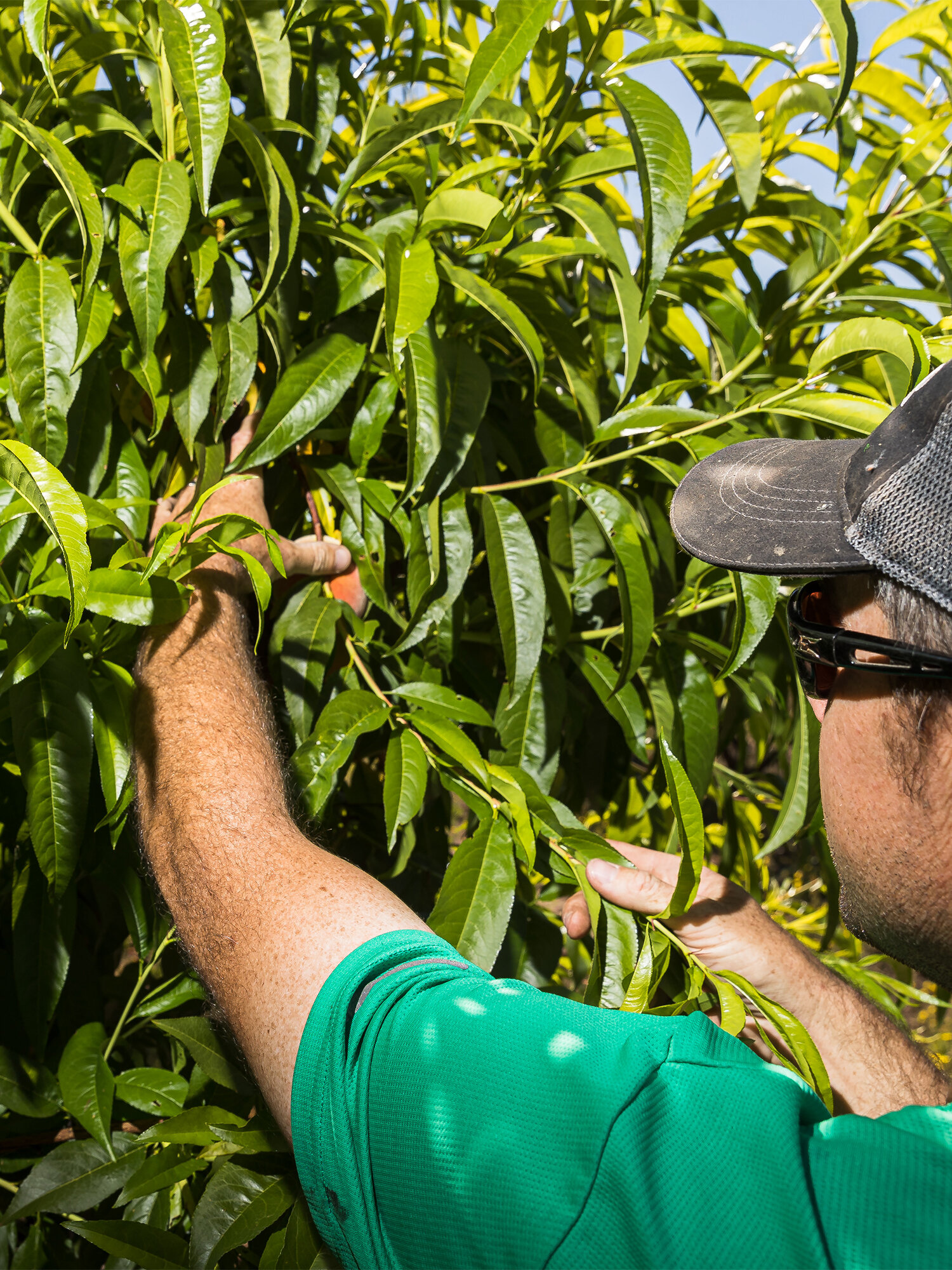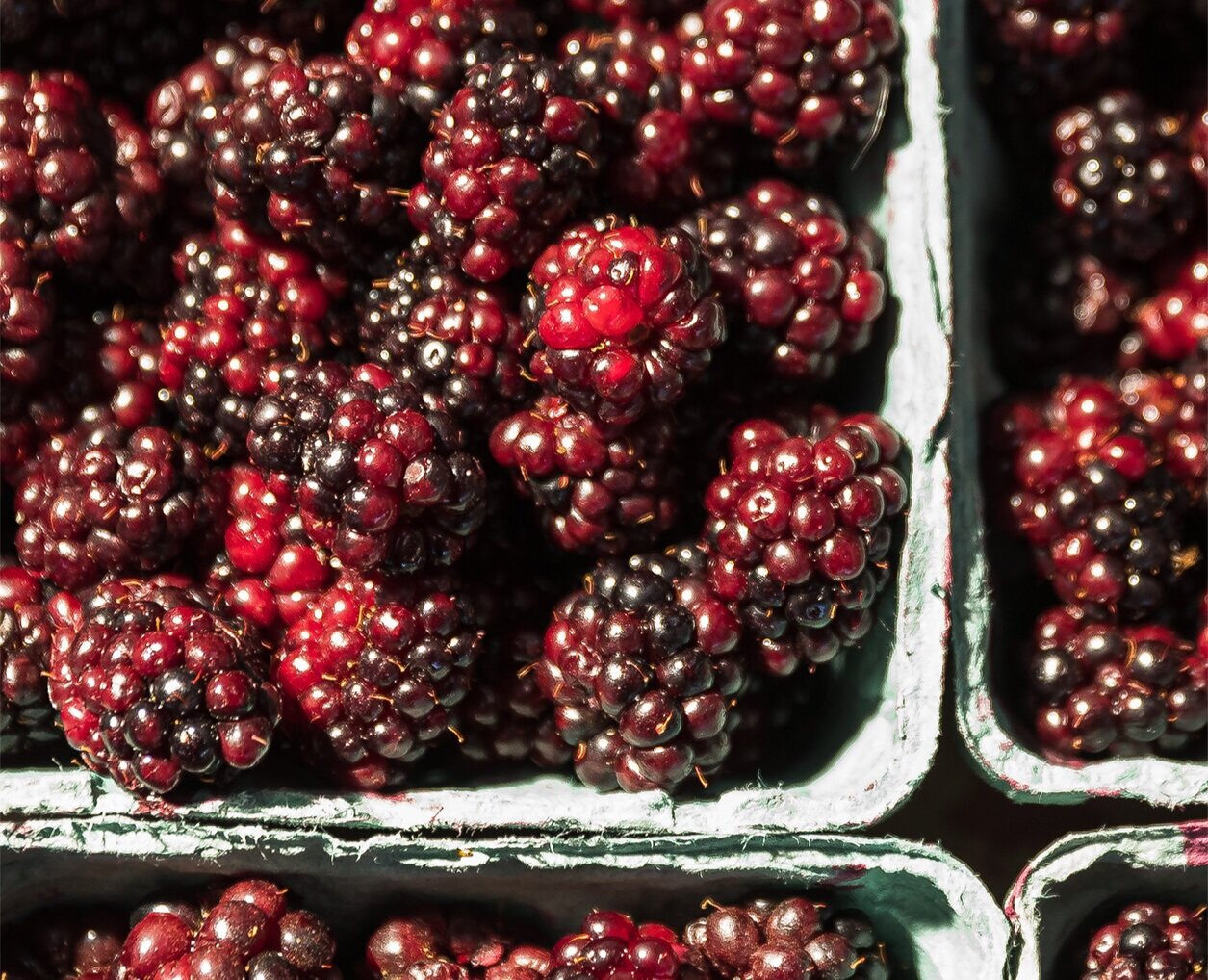Kruse Control

For almost 100 years, Kruse Farms has offered Umpqua Valley residents access to high-quality, fresh fruits and vegetables and a direct connection to the farmers who grow it.
Story by B. Lane Johns Photos by Thomas Boyd
Just off the intersection of Melrose and Garden Valley roads, Kruse Farms market and bakery is a Roseburg landmark, and when its doors open after a long winter, locals consider it an official rite of spring.
But while many flock to the market in search of fresh produce, delicious pies and a wide variety of other goods, few know the story behind the market with the colorful façade of fruits and vegetables.
It all started in 1923, when Bert Kruse cleared and plowed 13 acres of earth. It was a time when, in Roseburg, a farmer often had to rent a draft horse to help remove stumps or pull a plow.
Kruse spent many days behind a plow and farming in addition to milking a herd of dairy cows twice a day. Fortunately, his son Don pitched in to keep the farm going, eventually becoming a partner and then owner after Bert semi-retired in the 1970s.
As the surrounding community grew, so did the farm until the original 13 acres became almost 500.
Don kept farming into his early 80s. He died in 2018 at age 87.
These days the farm is run by a partnership that includes Don’s son Jeff, daughter Karen and grandson Evan. Karen supervises the farm stand, gift shop and bakery, while Jeff and Evan manage the fields together. Jeff handles most of the hay business and manages field employees and harvesting. Evan tackles agronomy/horticulture, i.e., he keeps things growing.
“Today Kruse Farms is a local supplier, but at one time we delivered produce from Medford up to Portland,” Evan Kruse says.
The farm originally grew about a half-dozen crops for the wholesale market. Truckloads were hauled to distribution warehouses throughout Oregon, and Kruse Farms earned a widespread reputation for the quality of its produce.
When smaller local grocery stores began giving way to larger chains, farms had to become more specialized in what they grew or create their own market. Kruse Farms took the latter route. During the 1980s, the farm purchased its own produce stand and later added the bakery and gift shop.
“Most of our items have only been touched by one set of hands. When you have a closer connection to your community, it drives honesty and openness with food safety.”
— Evan Kruse
“Our farm went from growing a few crops on a larger scale to about 60 crops on a smaller scale, with over 100 different planting cycles,” Evan Kruse explains. “With such diverse crop structure we basically became a large farm composed of many smaller farms.”
Buying direct from farms, he adds, allows consumers to develop a more personal connection with suppliers.
“When you purchase produce from large chain stores, the food has passed through numerous hands and often traveled a long distance,” he says. “Most of our items have only been touched by one set of hands. When you have a closer connection to your community, it drives honesty and openness with food safety.”
It’s clear that farming runs in Kruse’s blood, and he takes his responsibility to his customers, and the earth, seriously. “There are a lot of places to shop, so when folks come to us, it’s meaningful,” he says. “If I wouldn’t eat it, I won’t sell it. It will be used as animal food or tilled back into the soil; we don’t waste it.”
With summer here, Kruse Farms is well-stocked with cucumbers, tomatoes, melons, squash, peaches and berries along with many other produce standards, including Kruse’s favorite.
“My favorite crop to grow is corn,” he says. “To me summer is not here until the corn is ready to harvest. We do nine or 10 plantings in order to space our harvest out and keep the market stocked.”
Kruse Farms is always looking to supply the area with a needed crop. This year it’s Teff hay, which originated in North Africa. “It supplies a specialized food source for horses with certain medical conditions, and it also makes an excellent cover crop,” Kruse says.
Some popular crops take a while to get dialed in. “Last year we finally became fully self-sufficient for our apple supply,” he says. “My granddad started planting trees years ago, and I think we got it figure out. But the hardest crop to grow is the one you’re growing for the first time.”
Over the years, the Kruse Farm bakery has gained a loyal following as well, especially among lovers of fruit and cream pies. Fans of baked goods will also find turnovers, cookies, cinnamon rolls and more, including a variety of Oregon-made products, from jams, syrups and baking mixes to salsas, pickled vegetables and barbecue rubs.
While the farm stand is the main outlet for fruits and vegetables, some u-pick options are available in season, including strawberries, cherries, blueberries, blackberries, boysenberries, marionberries and pumpkins.
If a man’s working lifetime can be estimated by his enthusiasm for what he’s doing, Kruse will be running a tractor for a lot of years to come. And, like previous generations of Kruses, his son Owen shows signs of wanting to follow in his father’s footsteps.
If a fifth generation of farmers keeps the Kruse Farm tradition alive and well, that will make future generations of Roseburg produce lovers very happy.









